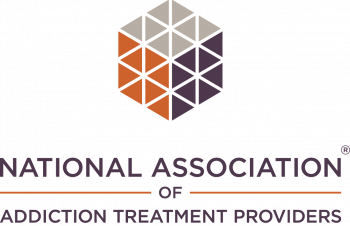There tends to be confusion surrounding the difference between opiates and opioids. Often, people think that these two terms are interchangeable. Opioids are natural versions of drugs that interact with the receptors in our brains. Opiates are synthetic drugs created in a lab that are significantly stronger than natural opiates. In this instance, it’s important to keep in mind that natural does not necessarily mean safe or healthy. Both opioids and opiates come with a high rate of potential addiction. Because opiates are stronger and more potent, addictions to these substances come with additional risks.
If you or your loved one is struggling with addiction, we encourage you to reach out to the medical experts at TruHealing Gaithersburg at (833) 625-0398. We can provide more information about how our opiate addiction treatment program can help with recovery and help you determine which treatment option is right for your needs.
The Difference Between Opiates and Opioids
It’s good to know the difference between opiates and opioids because you’re talking about the difference between natural and synthetic drugs. These synthetic drugs are usually much more potent than their naturally occurring counterparts. The strength and potency of opiates, which are synthetic and made in a lab, are linked to higher rates of physical dependency. Dependency is the possibility of creating high tolerance to drugs and higher rates of addiction.
The potency of synthetic drugs brings along increased risks. Those with substance abuse disorders are at risk for addiction but also overdose. Furthermore, when someone has stopped using for a period of time and then takes a particularly strong dose of an opiate, they are at greater risk of overdose.
Understanding Common Opioid Misuse
People have naturally occurring opioid receptors in their bodies. Since this is the case, when the body comes into contact with opioid-related substances, the brain instantly recognizes what these are and knows how to metabolize them.
Unfortunately, people run into problems when they misuse opioids. The body is able to process a certain amount of these substances under appropriate circumstances without becoming tolerant to them. Therefore, when a person abuses opioids, they are consuming them in quantities the body cannot handle.
Are Some Opiates Also Opioids?
Opiates are the natural alkaloids from opium. Partially synthetic drugs derived from these same sources may also be called opiates. All of these substances are also opioids. This list of opiates includes:
- Morphine
- Codeine
- Heroin
- Thebaine
- Oxymorphone (Opana)
- Hydrocodone (Vicodin)
- Oxycodone (OxyContin)
- Hydromorphone (Dilaudid)
Fully Synthetic Opioids
Drugs that are completely synthetic and made in a lab are classified as opioids, including the following:
- Fentanyl
- Methadone
- Meperidine (Demerol)
- Tramadol
The Danger of Opioid and Opiate Use
Whether you’ve been abusing opioids or opiates, it’s vital to seek treatment. Llong-term opioid and opiate use can lead to a range of health complications, including:
- Organ damage
- Heart problems
- Collapsed veins
- Mental health concerns
- Blood-borne illnesses
Without support, many people find themselves returning to use, putting them in danger of an overdose. Therefore, if you or someone you love is abusing opioids or opiates, finding treatment is vital.
Contact TruHealing Gaithersburg with Questions About Recovery Options
When it comes down to it, an addiction is an addiction. If someone has a substance abuse disorder, they are not on a good life path. At TruHealing Gaithersburg, we want to help you get your life back on track. Our addiction recovery programs and mental health services can help our clients heal their bodies and minds. Reach out to TruHealing Gaithersburg at (833) 625-0398 to speak with a trained representative who can help you decide on the personalized treatment program.









